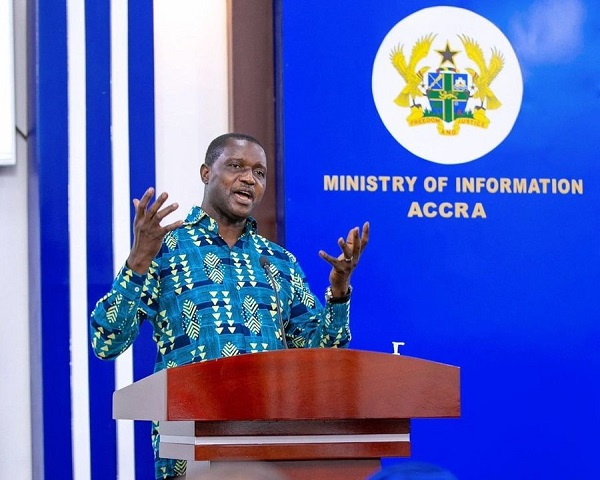Deputy Ranking Member on the Education Committee of Parliament, Dr. Clement Apaak, has called for a full-scale investigation into the government’s free wifi initiative for secondary schools across the country.
The call follows an investigative piece by The Fourth Estate on how some amounts were paid for Internet access to some secondary schools that had no system in place or an IT infrastructure to benefit from the initiative.
The lawmaker who represents the constituents of Builsa South believes the investigation will unravel why this happened.
According to the publication by the Fourth Estate, the Ministry of Education has paid for internet for schools that did not have internet for as long as two years.
The schools, including Labone SHS and Accra Academy, have been on private internet for years.
Dr. Apaak opined that this is a clear case that ought to be investigated to determine why the government will spend so much money on no work done.
He is asking for an audit of payments made so far since the initiative was launched.
He also wants all payments made to schools that did not have internet access to be retrieved.
The free Wi-Fi for schools was launched by Vice President Dr. Mahamudu Bawumia in February 2020.
It was a 2016 campaign promise by the NPP.
It promised to collaborate “with the private sector [to] provide free Wi-Fi coverage for senior secondary and tertiary institutions nationwide, dedicated to learning, administration, and enhancing the capacity to do research.”
However, the latest expose by Fourth Estate has revealed how payments were made even though some of the schools did not have the infrastructure needed to benefit from the initiative.
This, Dr. Apaak argued, was an act of corruption and must be investigated to ensure that all those behind it are dealt with.
“There is a need for an investigation into the implementation of the Free WiFi policy. The investigation must include an audit of payments made so far. The money paid to the Internet provider for schools that didn’t have Internet must be retrieved.”
In July 2023, Dr. Apaak raised concerns over why some schools, which were said to be part of those that had been connected to the free Wi-Fi initiative, weren’t benefiting.
His comments came at a time when a report issued by African Education Watch (Eduwatch) indicated that about 78 percent of the 138 senior high schools (SHSs) that responded and were surveyed did not have functioning Wi-Fi, despite the rollout of the free WI-FI programme.
Dr. Apaak, during that period, voiced concerns and filed questions in Parliament demanding answers to the matter.
In an interview with the media on the matter in 2023, the MP said, ”For the past two years, I have been filing questions seeking clarity, seeking investigations, and seeking details regarding the government’s policy to provide free WI-FI to public senior high schools, and so I welcome this research done by Africa Education Watch, although what has been put out is not exhaustive.
“For example, we know that we have in excess of 730 senior high schools and TVET schools in Ghana, we are aware that the government has indicated that it has provided free WI-FI to all of the schools as far as we are concerned.
“At the same time, I have gone on to file a series of questions seeking more details with regard to this policy because I have been receiving complaints and reports from both teachers, instructors, and students from across the country to the effect that the free WI-FI is not in use, it is not benefiting the students.
“So one of the questions is that, I have asked, for which am hoping the minister will provide answers to, the number of Secondary and TVET schools in Ghana currently enjoying the free WIFI on the basis of the government’s programme and policy to provide free WIFI to secondary and TVET schools.”

